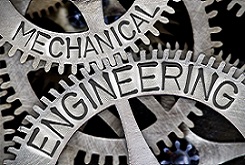

Civil engineering is the discipline of global creator to meet the fundamental needs of human beings.
Civil engineering provides comforts public life. It traditionally covers streams such as geotechnical engineering, surveying, construction technology, structural engineering, environmental engineering, transportation engineering, material engineering, urban planning, water resources engineering, architectural drawing, quantity analysis, earthquake engineering etc.
The course study involves in expansion of latest technology such as Computer Aided Drawing (AutoCAD), structure detailing, Surveying by Auto Level and Total Station etc., along with a rich Civil Engineering Lab. Facilities, which impart high quality education and training to the students.
The Civil engineering department has young, energetic and industrial experienced faculty members to bridge the gap between the academics and latest technology.
The main objective of civil engineering department is to disseminate the knowledge to the student to cater the demand of builders/contractors and construction industry people in and around the globe. This field of engineering enables the students to learn planning, analysis, design, construction method and maintenance of buildings, roads, dams, bridges, etc. They are also taught on utilization of natural resources such as water, minerals along with environmental education, transportation and urban engineering.

Mechanical engineering involves the analysis, design, manufacturing and maintenance of various systems.
It is one of the oldest and broadest engineering disciplines.
Mechanical engineering is an essential to a wide range of activities that include the design, development, manufacture, management, and control of engineering systems, subsystems, and their components.
Typically the manufacturing, power, aerospace, automotive, materials and processing industries employ mechanical engineers.
As a result of the recent rapid expansion of technology, mechanical engineers also have become increasingly involved in computer aided design and visualization; robotics; bio-engineering; solar; wind and ocean energy sources; The breadth of the field provides the mechanical engineers with many possibilities for a satisfying career.
The Mechanical engineering Department of the polytechnic College was established to fulfill the requirement of skilled workers in the region by providing them a variety of professional courses which is mainly technical and vocational in nature under one roof.
The Department with its richly integrated curriculum is committed to impart high quality education and training to the students. We have young, energetic, qualified as well as industrial experienced faculty members to bridge the gap between the academics and latest industrial trends.
The department is well equipped with state-of-the-art laboratories and modern infra-structure facilities, to help efficient learning of engineering principles and hand-on practical training.
Different laboratories are involved in experiments and projects. The laboratory staffs are highly skilled and experienced and keep up-to-date with latest technologies and equipments.

Electrical Engineering is one of the oldest and fundamental branch of engineering. It plays a dominant role in every walk of life ranging from house hold to the industrial sector. Today not a single machine could be thought of operating without electricity. Each and every person knows the importance of electricity. Development of a Nation is decided by the per capita consumption of electricity.
The college started with this fundamental branch with a team of highly skilled and professionally adept team of lecturers, lab assistants and supporting staffs. The department has industry experienced faculties on one hand, young and dynamic professionals on the other, who ensure that the students reach their full potential both on academic and professional scales.
To become a centre of excellence in the field of imparting education in Electrical Engineering and developing skill on par with the eminent institutions of the country and guide the students to become responsible citizens and competent professionals.
Department of Electronics and Communication Engineering is offering technology oriented courses and creating manpower in the strategic areas well compatible with the industrial expectations. The main aim of the department is to mould tomorrow’s technocrats by imbibing the essence of human values for innovation and creativity in science and technology towards building a peaceful self-sustaining Nation. Further, to set standards in teaching and learning incessantly for making a bright career path for the students and to establish state-of-the-art center for excellence in research.
The department envisages the wide spectrum of areas including, Electronics circuits & Communication Technology, Instrumentation and other applied areas focusing towards making brighter career path.
The department has been strengthened by its reputed faculty members from recognized Universities and organizations. Students are given broad opportunities for relevant skill development apart from regular academics in order to make them competitive and industry ready.
The electronics laboratory has all necessary facilities for conducting experiments of basic electronics,Advance electronics,Power electronics by the students with different training kits and general purpose equipments and measurement setups such as CRO,Function generator and the likes.
The laboratory provides general purpose and some specialized facilities for conducting experiments related to course work, mini projects and major projects in the areas of Digital Communication and Analog Communication Systems. The equipments available are analog and digital oscilloscopes, multi-output power supplies, function generators, pulse generators, fiber optics projects trainer, DS-CDMA trainer, signal processing starter kits, modular Digital Communication experimental unit ,Microwave Bench, GSM trainer and the likes.
Digital Electronics Laboratory is fully equipped with the required instruments such as C.R.O., Multimeters, signal Generator etc. to conduct experiments with digital ICs for diploma students. The details of the various instruments are as follows :